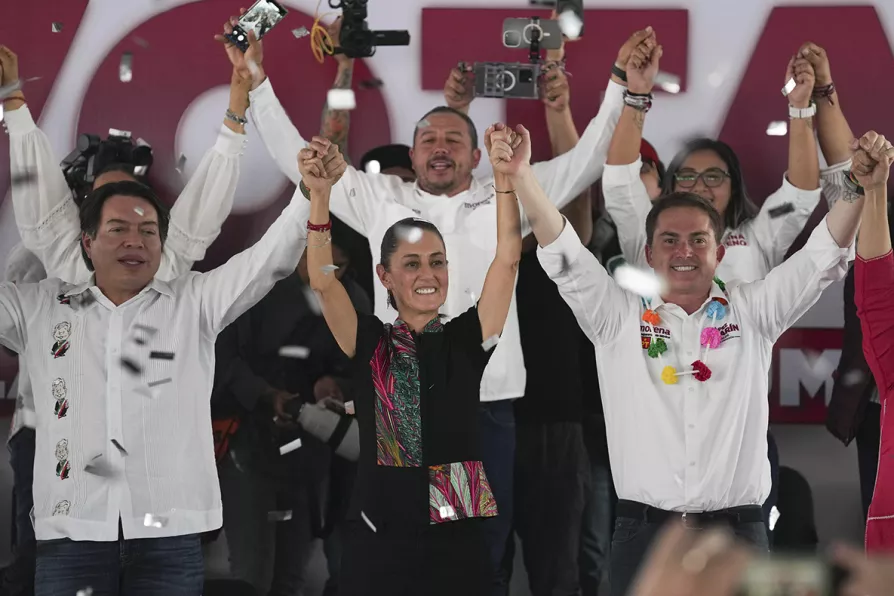The language of humiliation is a step towards a second civil war, argues RAMZY BAROUD

 Mexican presidential hopeful Claudia Sheinbaum (centre) greets supporters upon arriving at a campaign rally in Mexico City, May 16, 2024
Mexican presidential hopeful Claudia Sheinbaum (centre) greets supporters upon arriving at a campaign rally in Mexico City, May 16, 2024
ON JUNE 2 100 million Mexicans can vote on who will be the country’s next elected president.
Claudia Sheinbaum of the Morena party (National Regeneration Movement) is likely to win. A left-wing supporter of the retiring President Andres Manuel Lopez Obrador (aka Amlo) she is a scientist and the mayor of Mexico City. She currently holds a 25 per cent lead in the polls.
Besides the presidency the country will elect representatives to all 628 seats in Congress, nine governorships, more than 1,000 local legislators and around 18,000 municipal roles.

A November 15 protest in Mexico – driven by a right-wing social-media operation – has been miscast as a mass uprising against President Sheinbaum. In reality, the march was small, elite-backed and part of a wider attempt to sow unrest, argues DAVID RABY

DAVID RABY reports on the progressive administration in Mexico, which continues to overcome far-left wreckers on the edges of a teaching union, the murderous violence of the cartels, the ploys of the traditional right wing, and Trump’s provocations












